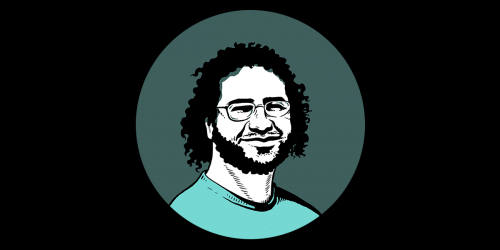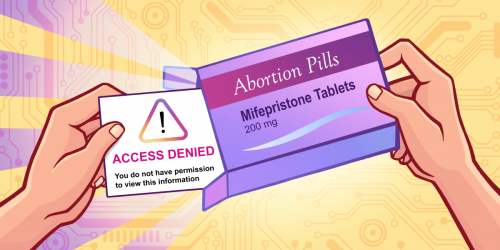Last week, a federal district court judge in Oregon raised eyebrows when he rejected claims that a self-proclaimed Internet investigative journalist did not enjoy the protections of the state’s reporter’s shield law in a defamation lawsuit brought against her by Kevin Padrick, an Oregon attorney who was one of the targets of her online postings. Judge Marco A. Hernandez noted that Cox is not “affiliated with any newspaper, magazine, periodical, book, pamphlet, news service, wire service, news or feature syndicate, broadcast station or network, or cable television system” and “thus, she is not entitled to the protections of the [shield] law in the first instance.” Moreover, without such evidence as her having “an education in journalism” or “credentials or proof of any affiliation with any recognized news entity,” Cox was “not ‘media’” for First Amendment and defamation purposes.
Hernandez’s opinion is both more and less important than it might first appear. To begin with, Judge Hernandez plainly misapplied the Oregon shield law. O.R.S. 44.520 clearly states that “[n]o person … engaged in any medium of communication to the public shall be required by a … judicial officer or body … to disclose … [t]he source of any published or unpublished information obtained by the person in the course of gathering, receiving or processing information for any medium of communication to the public.” Whatever else she may have been doing, by gathering information and directing her analysis and commentary to the public – even if it contained factual assertions that were incorrect, and even if some statements were defamatory – Cox was certainly “engaged in [a] medium of communication to the public.”
The definition of “medium of communication” was left deliberately broad by the Oregon legislature: “‘Medium of communication’ is broadly defined as including, but not limited to, any newspaper, magazine or other periodical, book, pamphlet, news service, wire service, news or feature syndicate, broadcast station or network, or cable television system.” O.R.S. 44.510(2). Is there really any serious doubt that Cox producing an Internet blog is analogous to her creating a “periodical,” "book,” or “pamphlet” for purposes of the statute? Even Judge Hernandez notes that Cox “made her statements in a forum available to the general public” which squarely undermines his eventual legal conclusion.
Unfortunately for Cox, the court’s error is likely irrelevant to the outcome of her case. The shield law creates a testimonial privilege that allows journalists to protect their sources; it doesn't offer protection from defamation liability. But the source of her statements were not really at issue. Cox appears to have explicitly disclaimed such an argument in at least one previous court filing, noting that “[t]his information has nothing to do with the blog post I am on trial for.” It's clear Judge Hernandez’s shield law ruling was unnecessary, at least as to Cox. Even the plaintiff appears to agree.
Judge Hernandez’s ruling is of far more consequence to bloggers and others who seek to communicate information to the public via the Internet. The court’s unnecessary and rigid definition of “media” may harm others who in the future want to communicate important information to the public through the Internet while protecting the identity of their sources. The court’s opinion ignores the actual statute and focuses on the existence or lack thereof of traditional media credentials, examples of indicia of journalism identified in the statute but examples explicitly identified as non-exclusive. See O.R.S. 44.510(2). Future non-affiliated individuals engaged in journalism who seek to expose wrongdoing, individuals who may well (admirably but unnecessarily) “adhere[] to journalistic standards” and live up to the image of journalists that the court apparently has in mind, may fall outside the Oregon shield law’s protections if Judge Hernandez’s ruling is followed. On this point, the opinion should be revised or overturned.
Two important things appear to be going on in this case. First, courts occasionally identify a reluctance to extend journalistic protections to non-traditional “media” sources such as bloggers because of a perceived lack of a limiting principle. How can everyone potentially be a journalist? courts seemingly ask. This sentiment is frequently echoed by mainstream journalists who, rightly or wrongly, balk at the perceived threat of dilution of legal protections for traditional journalists posed when (as here) self-proclaimed journalists might go too far and risk protections for established media. As EFF and many others have pointed out, the proper approach to this question is to focus on what amounts to journalism, not who is a journalist. Journalism is not limited to a particular medium; instead, it focuses on whether someone is engaged in gathering information and disseminating it to the public. To the extent that laws are unclear or out of date – such as Oregon’s retraction statute which does not clearly include (or exclude) Internet journalism – legislatures should be encouraged to expansively update them to ensure the protection of individuals seeking to communicate information to the public.
Second, and lost in much of the discussion about this case over the past week, Cox’s case seems to have much to do with an underlying discomfort and concern about how information is distributed online, whether or not it is actionable. David Carr’s recent article in the New York Times illustrates the phenomenon well. In it, Carr quotes plaintiff Kevin Padrick as lamenting the effect of Cox’s “long-running series of hyperbolic posts” and telling Carr that “his business as a financial adviser had dropped by half since Ms. Cox started in on him, and any search of his name or his company turned up page after page on Google detailing his supposed skullduggery, showing up under a variety of sites.”
However, as Carr also notes, “Judge [] Hernandez … threw out most of his claims of defamation, ruling that Ms. Cox’s posts were so over-the-top that no reasonable reader would conclude that she was making allegations of fact.” Cox was found liable for defamation to the tune of $2.5 million not for any “long-running series” of posts, but for a single post from Christmas Day of 2010 accusing him of criminal activity. As sympathetic as Padrick may seem in some respects, the jury’s award seems grossly disproportionate given the fact that the harm he complains about – the negative impact of a “long running” series of hyperbolic posts – was the result of protected speech except (says the court) for a single post.
Cox’s case perhaps resonates most on this latter point. Carr concludes his article with concern for the potential harm to Padrick’s perceived good name and lamenting that it’s “[t]oo bad there’s no algorithm to measure truth.” It certainly is too bad, but that isn’t to say that one won’t exist in the future. Search engine algorithms have come a remarkable way and are much more nimble and precise than they once were, but they still, in some circumstances, are perceived to “give” disproportionate weight to negative, critical, and unsupported allegations. That First Amendment-protected speech might contribute to such consequences because of where it emerges in search engine results, however, shouldn’t be the basis for multi-million dollar defamation judgments.
Litigants are frequently tempted to use the court system to remedy perceived (non-legal) harm resulting from protected Internet speech, such as anonymous online criticism and most (if not all) of the speech identified in the Cox case. Especially as search algorithms remain imperfect and will remain so for the foreseeable future, it is important that courts and juries avoid overreaching when they feel that online speakers simply “deserve” punishment. And it is imperative that legislatures carefully consider and update legal protections (such as shield laws and retraction statutes) so that online speakers and listeners know the relevant boundaries of the online terrain.









